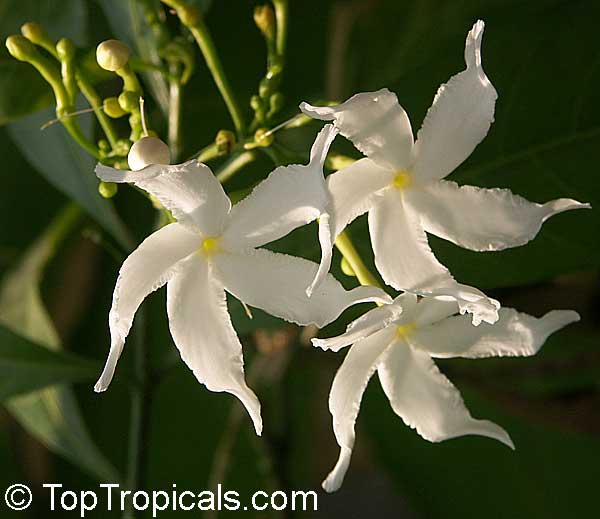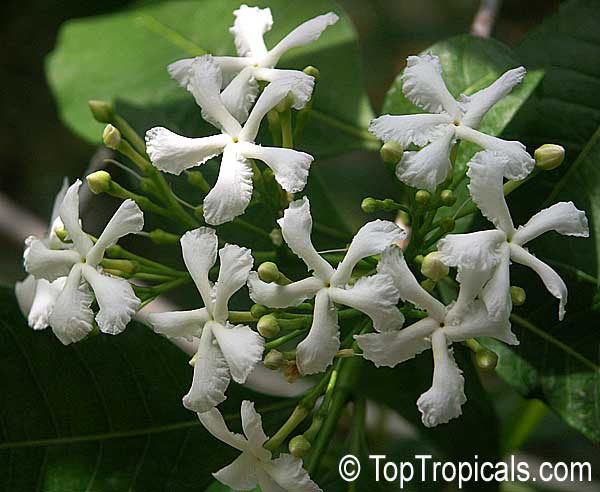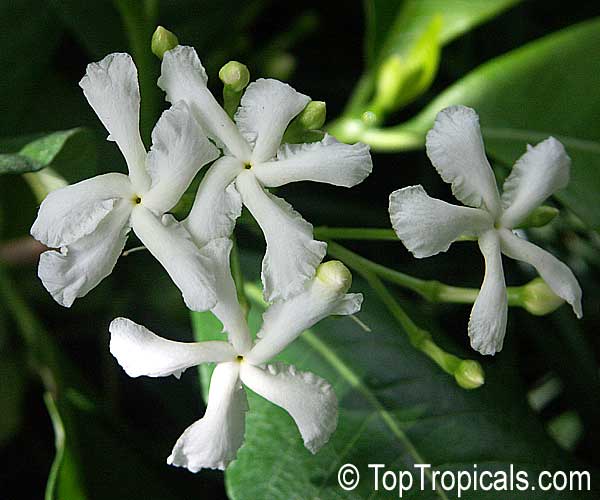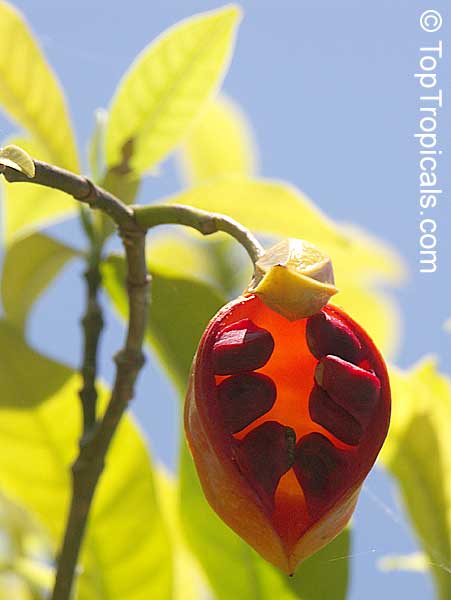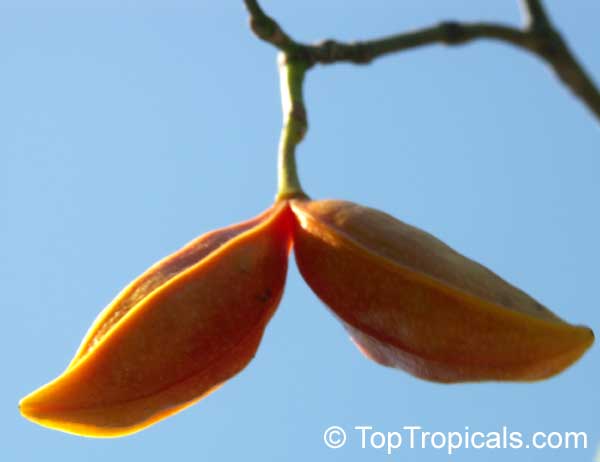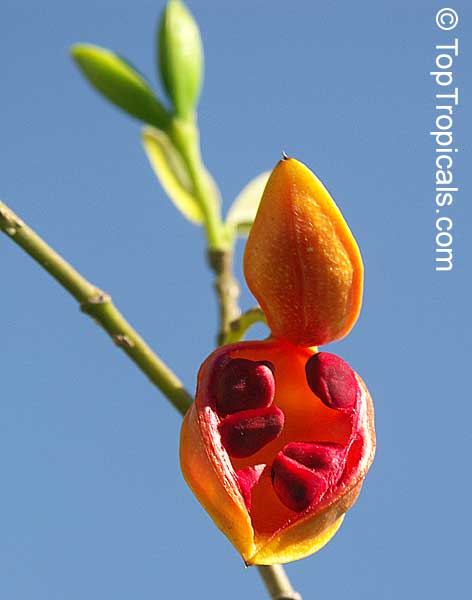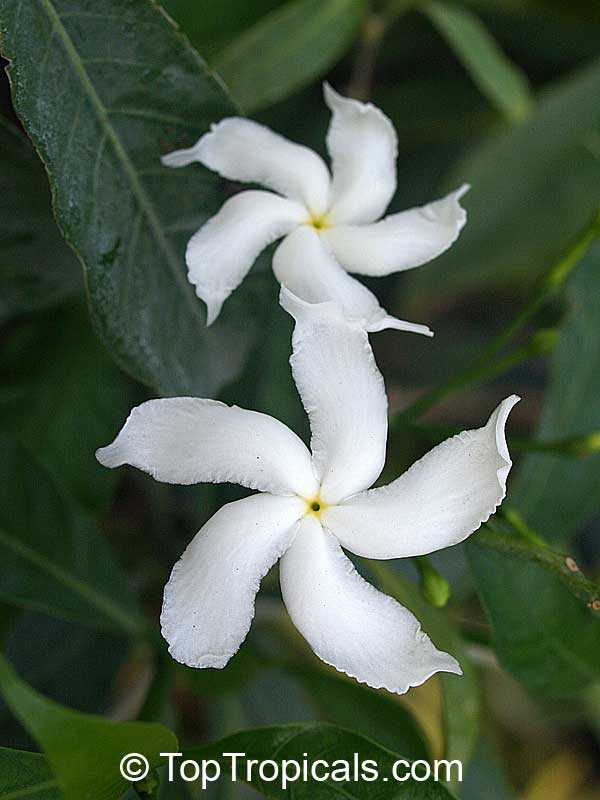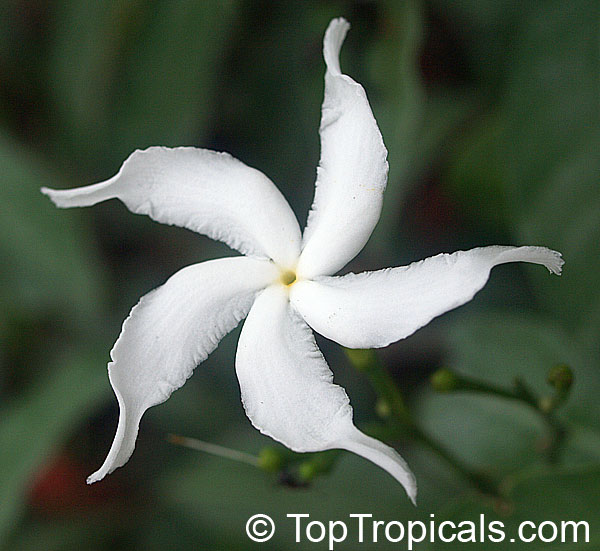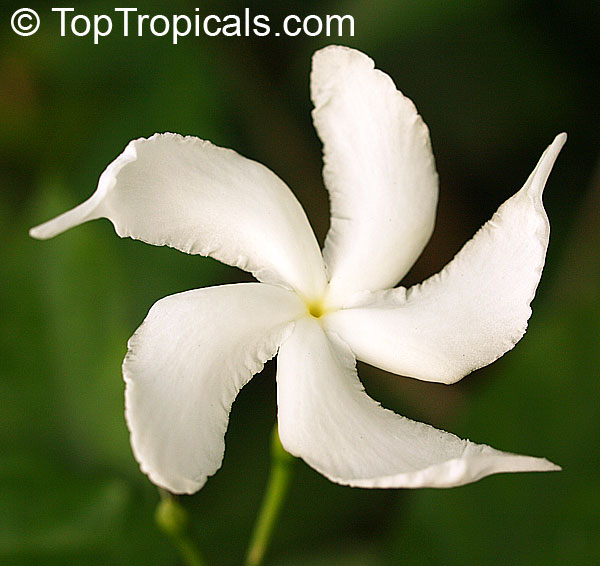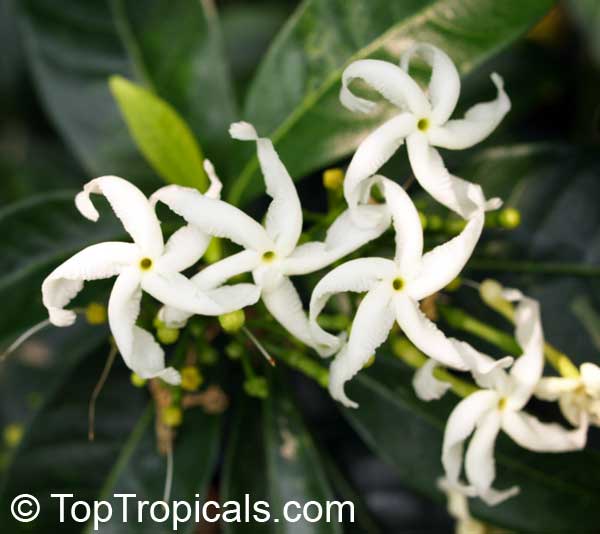Tabernaemontana orientalis (Banana Bush)
Botanical names: Tabernaemontana orientalis, Ervatamia orientalis, Ervatamia pubescens, Ervatamia floribunda
Common names: Banana Bush, Native Gardenia
Family: Apocynaceae
Origin: Asia










Tabernaemontana orientalis, also known as the Banana Bush, is a large shrub that is native to Asia. It can grow up to 10 feet tall, but is smaller when grown in pots, reaching only up to 5 feet in height. This plant thrives in full sun to semi-shade and requires regular watering.
The Banana Bush produces highly fragrant, white or off-white, Jasmine-like pin-wheeled flowers that are attractive to butterflies and hummingbirds. The flowers have five petals that fuse together to form a tube, regularly symmetrical, and have long tips. The foliage and stems of this plant exude white latex when damaged. When grown in too bright light, the foliage may turn yellow. The fruit consists of pairs of orange-yellow fused banana-shaped capsules, similar to those found in other species.
In addition to its beauty, Tabernaemontana orientalis is also used in traditional Asian medicines. It is a deciduous plant and is recommended for USDA Zones 9-11. This plant's stunning blooms and low-maintenance care make it a great addition to any outdoor space.
Similar plants: Tabernaemontana orientalis (Banana Bush)
- Rauvolfia verticillata (Devil Pepper)
- Tabernaemontana divaricata (Pinwheel Jasmine)
- Stemmadenia galeottiana (Lechoso)
- Stemmadenia grandiflora (Wedding Tree)
- Tabernaemontana africana (Samoan Gardenia)
- Tabernaemontana aurantiaca (Orange Milkwood)
- Tabernaemontana australis (Australian Pinweel)
- Tabernaemontana corymbosa (Flower of Love)
- Tabernaemontana crassa (Adam's Apple)
- Tabernaemontana divaricata 'Flore Pleno' (Crape Jasmine)


